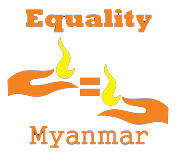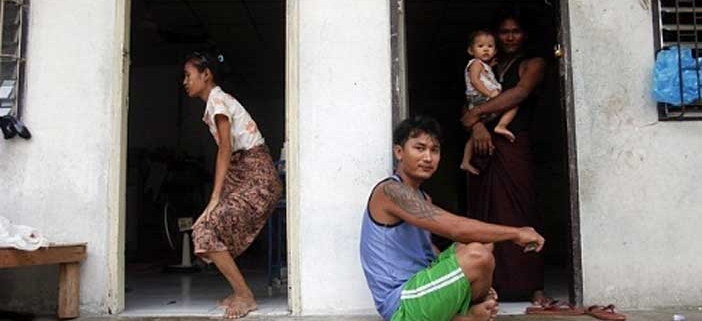WEDNESDAY, 29 FEBRUARY 2012
Up to one million Burmese migrants face deportation if they fail to complete Thailand’s national verification procedure by 14 June, human rights campaigners warn, with the stateless Rohingya seen as particularly vulnerable.
The deadline for migrants to complete the government’s national verification process was originally set for 28 February 2010, but extended for two years after pushback from global human rights activists. After sustained campaigning, migrants now have until June this year to register, but rights groups warn that a substantial portion of Burmese living in Thailand will fail to meet the latest deadline.
With the process requiring migrants to confirm their national identities through their home countries, huge uncertainty looms for migrants from the ethnic Rohingya population of Burma who are denied citizenship by the Burmese government. Despite attempts to set up in-country verification centres, numbers of migrants may still have return to Burma to confirm their identification via border crossings, where extortion by officials is common.
Human Rights Watch says that the latest delay only signals the weakness of the “overly bureaucratic and expensive” process as well as Thailand’s need for cheap labour, rather than any sincere recognition of migrant rights.
“The process is long, overly complicated, and expensive,” Phil Robertson, the group’s deputy Asia director, told DVB. “Thai and Burma government negotiators have agreed at last to finally open more nationality verification centres in Thailand for Burmese, but many of these centres are still on the borders, requiring long and expensive trips by workers to apply.”
Up to three million migrants from Burma are thought to be working in Thailand. Despite providing crucial low-cost labour for the developing economy, these workers face regular exploitation, including extortion, workplace abuse, sexual exploitation, trafficking and poor wages. This is all compounded by a lack of access to justice and remedial processes.
There is also concern that growing pressure for national verification in the lead up to the June deadline could leave those without documents even more vulnerable.
Critics have panned the Thai government for failing to tackle abuse among the migrant population in a meaningful way and some fear that the ongoing democratic reforms in Burma will make the Thai government even less inclined to protect Burmese migrant workers.
Earlier this week, ASEAN Secretary-General Surin Pitsuwan called for Thailand to shift towards a skill-based economy in anticipation of Burmese labourers returning home. “While the need to improve the migrant registration system is still there to ensure basic human rights are respected, Thailand has to look at medium- and long-term strategies as Myanmar [Burma] is moving in a labour-intensive direction,” Surin said.
Activists insist that it is far too early to make assumptions about the new pseudo-civilian Burmese government, especially when pressing migrants to hand over comprehensive background information to the authorities.
“Even though now Burma has seen a little improvement, it is only some areas,” says Toom Hawk Harn, a spokesperson for the Thailand-based Migrant Assistance Programme (MAP) Foundation.
“The changes we have seen are only cosmetic. And for the migrant worker nothing has changed. The living wage is the same.”
A recent report by the Burma Women’s Union also suggests that migration is likely to increase in areas directly affected by natural resource development, often as a result of forced eviction.
Photo : Reuters


 Equality Myanmar (EQMM) is a leading nongovernmental organization that organises a wide range of human rights education and advocacy programs, the documentation human rights violations, and provides emergency support for activists, human rights defenders, and their families. We work with a range of local civil society organizations, educators, activists, various local actors, and our programs and activities reach all states and regions in Myanmar.
Equality Myanmar (EQMM) is a leading nongovernmental organization that organises a wide range of human rights education and advocacy programs, the documentation human rights violations, and provides emergency support for activists, human rights defenders, and their families. We work with a range of local civil society organizations, educators, activists, various local actors, and our programs and activities reach all states and regions in Myanmar.
